The bright, foggy future of mobile computing - Talk Mobile
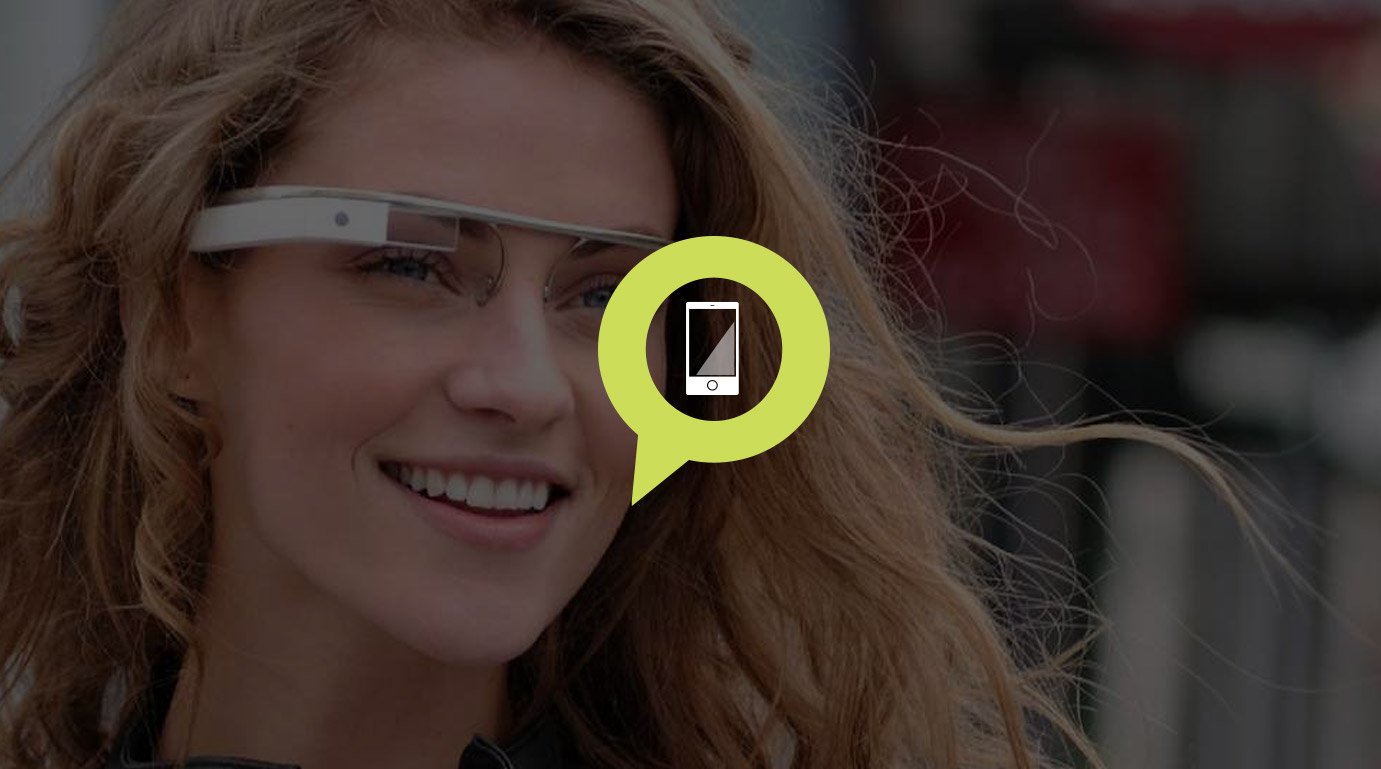
Presented by Blackberry
Talk Mobile Platforms
The bright, foggy future of mobile computing
Smartphones have come a long way from the days of the Palm, BlackBerry, and Windows Mobile phones of yore. Heck, they've come a long way in just the last few years. What were once merely appliances, simple tools of siloed information and conduits are now adaptable powerhouses that have worked their way into nearly every facet of our lives. We're more connected than ever before, and thanks to the rapidly advancing reality of smartphones and the services that support them, we're likely to be even more connected in the future.
But what will that future bring? Can we expect the chips and screens and radios that make up our smartphones and tablets to just iteratively evolve, or is there a revolution in sight? What about the software on those devices - is there room for substantial improvement, or have we already met the interface of tomorrow? Is more of our data going to move into the cloud? What about the actual computer itself? Just how aware are these devices and services of who we are, what we're doing, and what we're likely to do?
The future of mobile computing is exciting, terrifying, intriguing, and confusing. It's bright, but hazy. What lies ahead?
Let's get the conversation started!
Get the latest news from Android Central, your trusted companion in the world of Android
Daniel Rubino Kevin Michaluk PhilNickinson Rene Ritchie
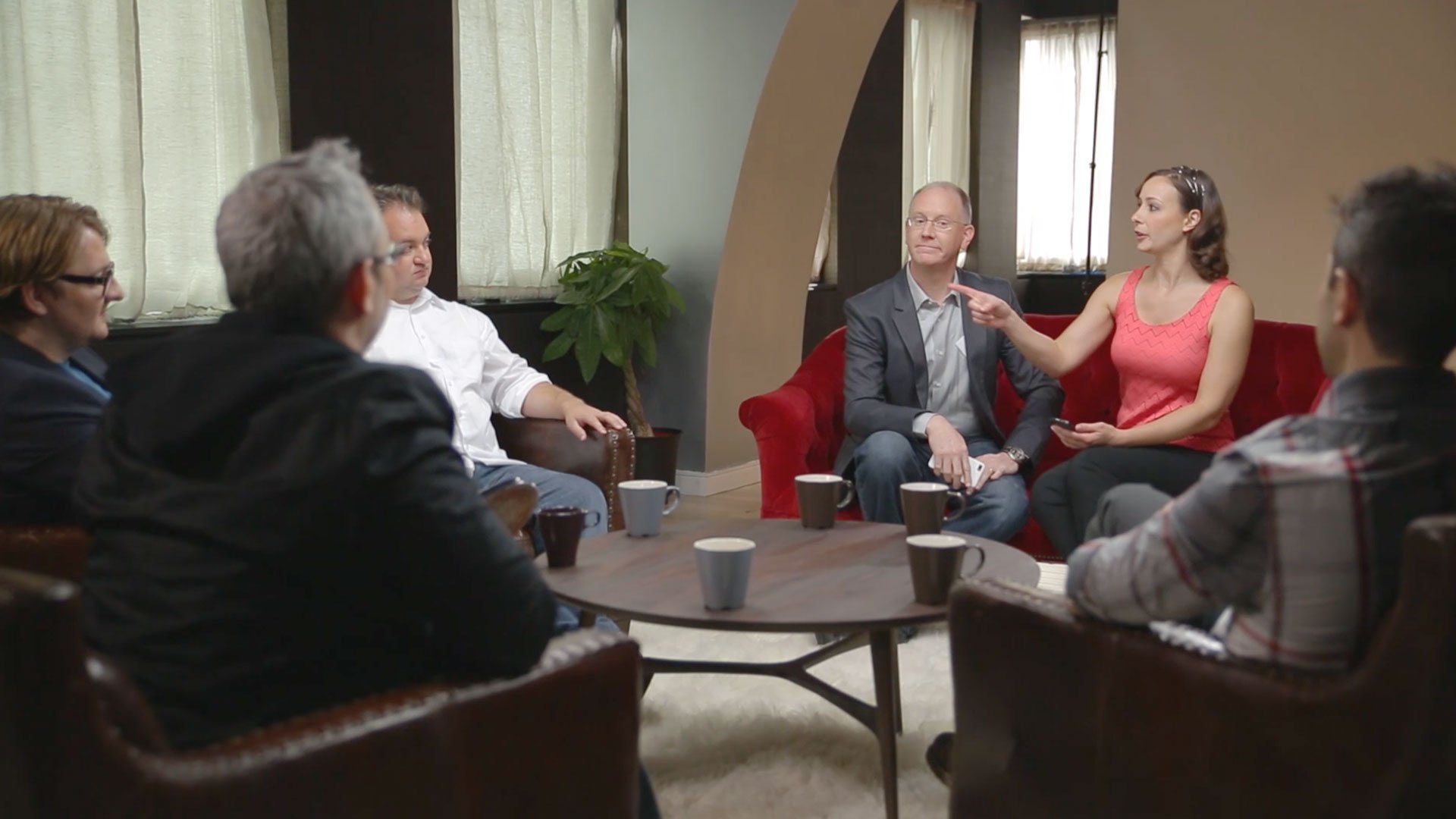
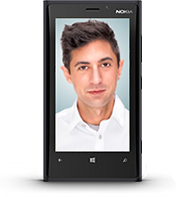



Platform futures
Platform futures
- Future hardware
- Video: Alex Dobie
- Future software
- Video: Leo Laporte
- Future services
- Video: Vivek Bhardwaj
- Future ecosystems
- Video: Dieter Bohn
- Conclusion
- Comments
- To top
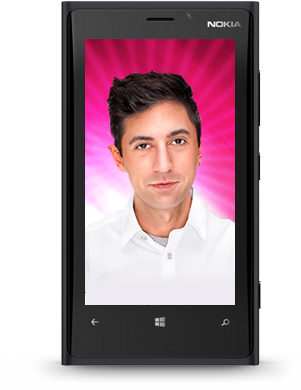
Daniel Rubino Windows Phone Central
The smartphone of tomorrow: Harder, faster, better, smarter
In 2013 we have seen the proliferation of ultra-high-resolution 1080p displays with densities approaching an absurd 450 pixels-per-inch, far beyond what even the best human eye can distinguish. Will 2014 see even more dense displays, or is 1080p more than enough for a smartphone? Multi-core mobile CPUs have been the norm for a while, and are now finding their way into even low-end devices. The next year will see faster and more efficient processors across the board. It's the inexorable march forward of technological progress.
It's the inexorable march forward of technological progress.
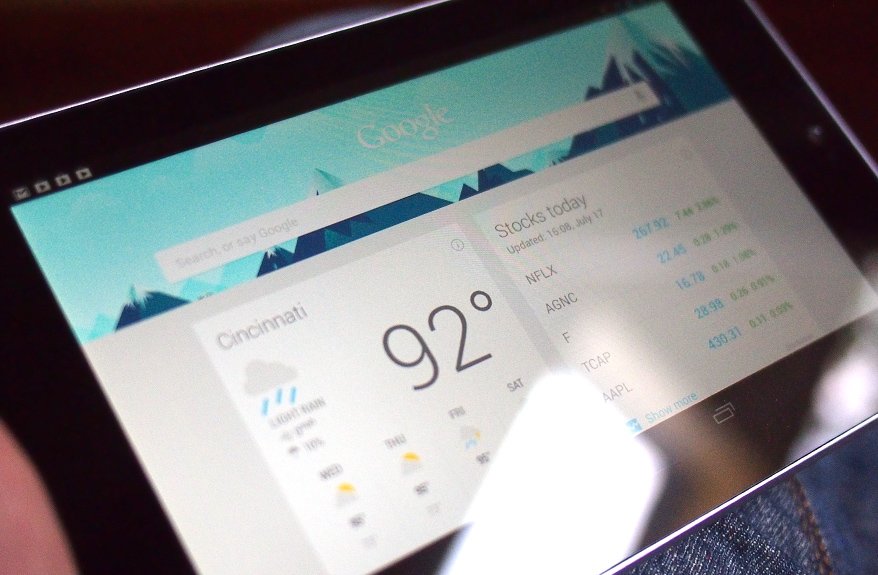
A little green robot
In 2003, former Danger co-founder Andy Rubin teamed up with industry veterans Rich Miner, Chris White, and Nick Sears to form Android, Inc. The company's goal: developing "smarter mobile devices that are more aware of its owner's location and preferences." They were going up against the likes of Symbian, Windows Mobile, BlackBerry, and Palm.
Two years later, Google purchased Android and brought on key employees to accelerate development of a mobile phone operating system. The team operated in secret at Google, who plied manufacturers and carriers for their cooperation. The introduction and success of the iPhone helped Google's efforts, and in November 2007 they finally unveiled the open source Android and the HTC G1/Dream to the public.
Android has exploded since that 2007 launch. More than 900 million devices world-wide are powered by Android. Google has worked with manufacturers including Samsung, HTC, and LG to build the Nexus line of devices that are Android as Google intended. Google also purchased Motorola Mobility in 2011, both for its patent portfolio and manufacturing prowess.
Will motion sensors become big? Samsung experimented with their Galaxy S4, allowing users to wave their hands over the screen to interact with the phone. Even eye detection is built in to pause a video when you look away. Is this a real advancement in motion tracking, or just a gimmick while we figure out how to really use this tech?
Wireless charging and NFC are also two debated technologies with uncertain futures. The concept of wireless charging is here to say, the standard behind it is up grabs. Qi and its rival Power 2.0 are duking it out for manufacturer support. There's even a third group, Alliance for Wireless Power, vying for a place in the market. In the meantime, manufacturers and customers are taking a step back from wireless charging and waiting for the dust to settle before making investments. Likewise, NFC is still struggling to push out of its infancy, and without the support of the iPhone it looks to remain a geeky niche for financial transactions or photo sharing - if users even know they have it.
But this is fighting for supremacy is all good news, as it means that more organizations and more funds are being invested in mobile in 2013 than in 2012 and that trend will continue for years to come. Competition is good for the market, it's good for innovation, and it's good for consumers. In the end, consumers will continue to see the rapid innovation and product development in mobile, unlike at any other time. And that's something to be excited over.
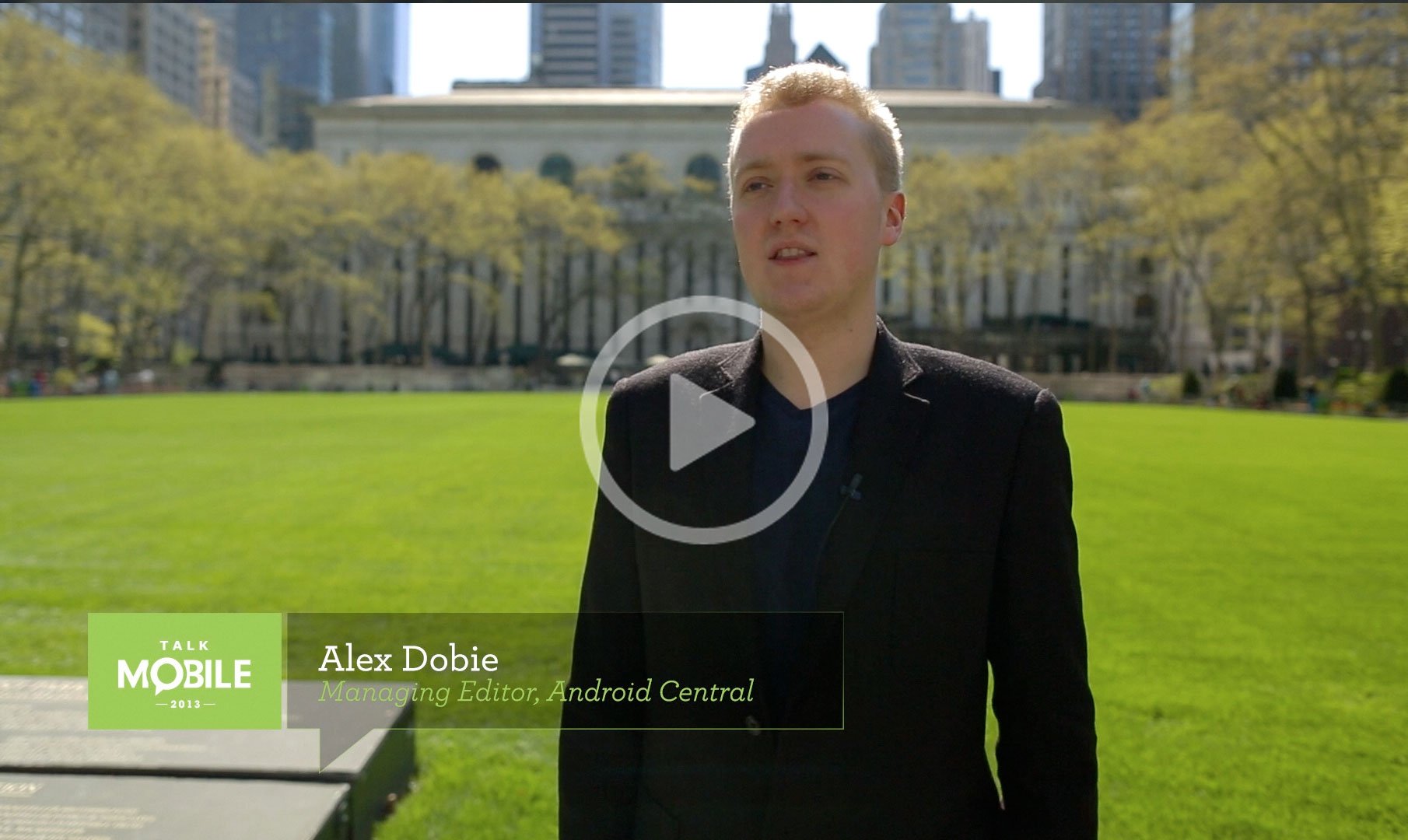
Soon we're going to get to a point where internal hardware is fast enough and a lot of the innovation is going to come from things like camera quality.
- Alex Dobie / Managing Editor, Android Central
Q:
What do you want from the phone of the future?
313 comments
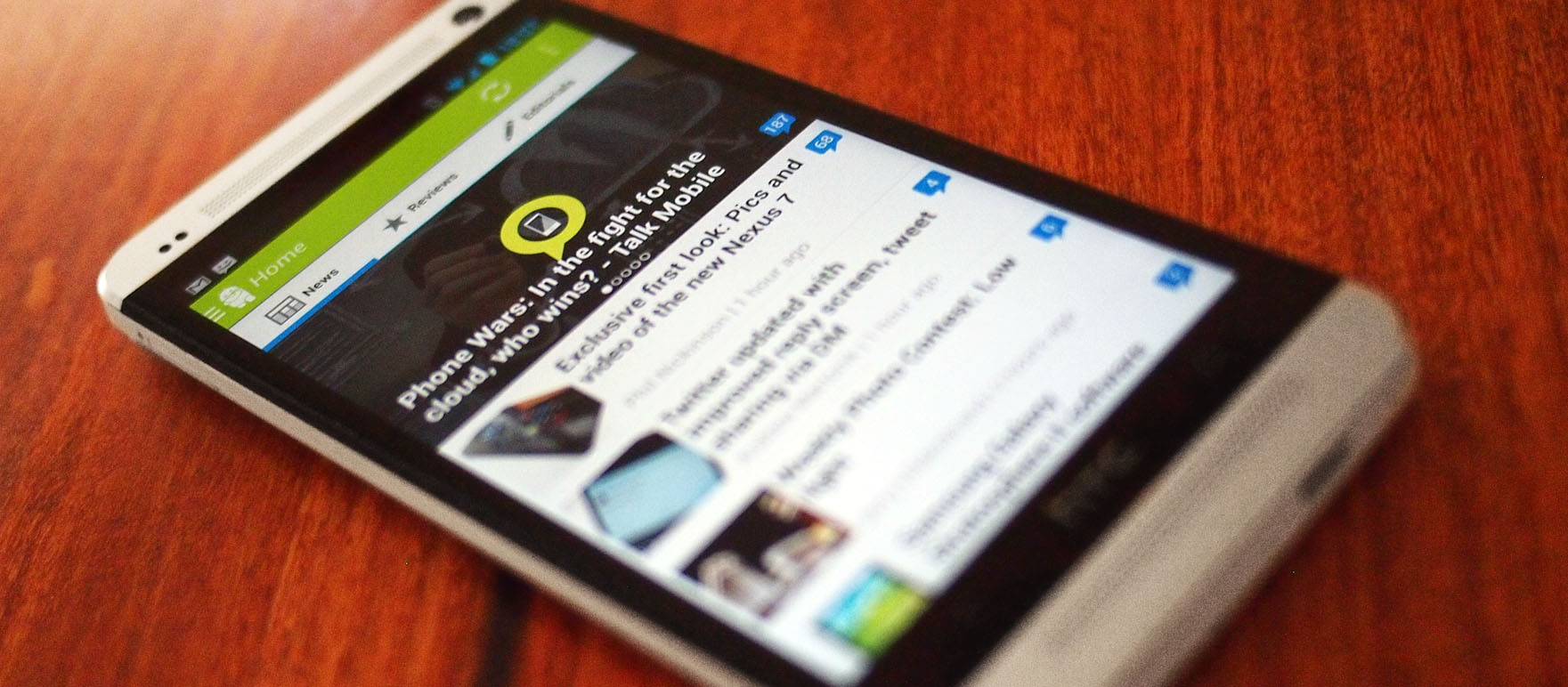
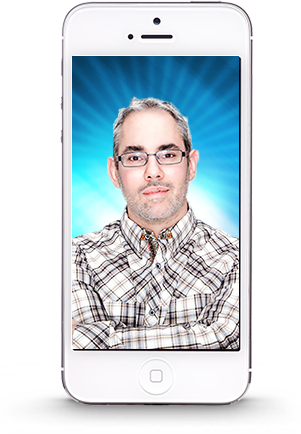
Rene Ritchie iMore
The disintermediated predictive interface
Every advance in computing has coincided with an advance in software interfaces. The Apple II and DOS made the command line interface mainstream. The Mac and Windows did likewise for the Graphical User Interface (GUI), and at a scale unimaginable to many early pioneers. Thanks to the GUI, and the window, mouse, and pointer that came along with it, computing was made more accessible to more people than ever before.
It took years to get mobile touchscreens right, but the iPhone and Android did it, such that even stalwarts like Microsoft and BlackBerry jumped to the multitouch. Computing became almost entirely disintermediated and we could literally touch and manipulate the content on our screens. Tablets vaulted computing forward again, as people who never thought they'd feel comfortable with a personal computer almost instantly grasped the very personal, post-PC computer.
Computing became disintermediated and we could literally touch the content on our screens.
Windows and OS X still have command lines for power users who crave such. There are rich graphical interfaces for users of Office or Photoshop and the other software products that defined the last 20 years of productivity. Even the desktop computer has joined the touch revolution, with a touch-friendly Modern interface for Windows 8 and trackpad gesture controls in Apple's OS X.
The next big transition is already underway. Thanks to Siri voice controls my 4-year-old godson can exchange iMessages with me even though he can't yet read, write, or type. He can FaceTime with me though he doesn't know how to use a dialer or grasp the concept of contacts.
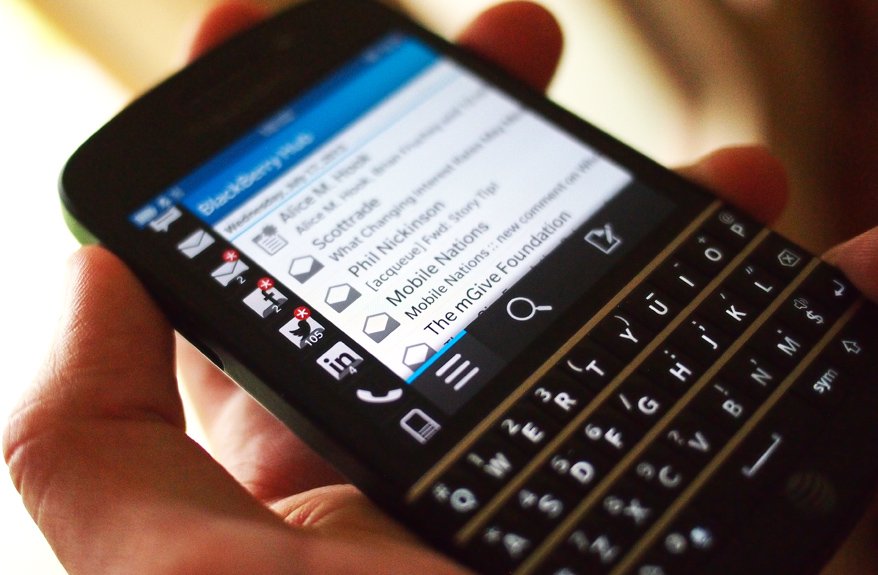
Rubus fruticosus motus
Founded in 1984, Research in Motion initially focused on networking. They were contracted to improve the Mobitex wireless network for two-way paging and email. It wasn't until 1999 that RIM released its first consumer hardware: the BlackBerry 850 pager. The key to their system was the BlackBerry Enterprise Server, allowing for secure communications that made BlackBerry devices a favorite of corporations and governments.
BlackBerry devices and software continued to evolve over the next several years, coexisting in a small mostly-corporate market alongside Palm and Windows Mobile. That changed in 2007 with the release of the iPhone and Android. RIM's first effort at competing - the BlackBerry Storm - fell flat. Built off an aging pager platform, BlackBerry OS was show its age.
To execute a revival, in 2010 RIM purchased QNX and their modern multitasking operating system. BlackBerry's first tablet, the PlayBook, launched in 2011 with an OS built on QNX. The next smartphone OS - BBX (later renamed BlackBerry 10) was due out in late 2011, but was repeatedly pushed back until launching in early 2013 on the new BlackBerry Z10. The company rebranded itself as BlackBerry.
Natural language interfaces are opening up computing to ever larger audiences, young and old, and those whose need for enhanced accessibility previously restricted them. Google Now is blending that with powerful predictive information retrieval. Microsoft is using Kinect to not only read our bodies, but our mood and our health.
It's still only the beginning. Facebook Home and iOS 7 are gameifying their user experiences. Apple has taken the first steps towards an objectified, dynamic interface. One day soon I expect natural language to merge with push data and physics engines so that software becomes transmutable, and only exists in the moment and the in the context that best suits that moment. The idea of home screens and widgets and maybe even apps as we know them will fade, and data and content will just come to us when we need or want it, wherever we are.
That's the future of software I envision, and I want it now.
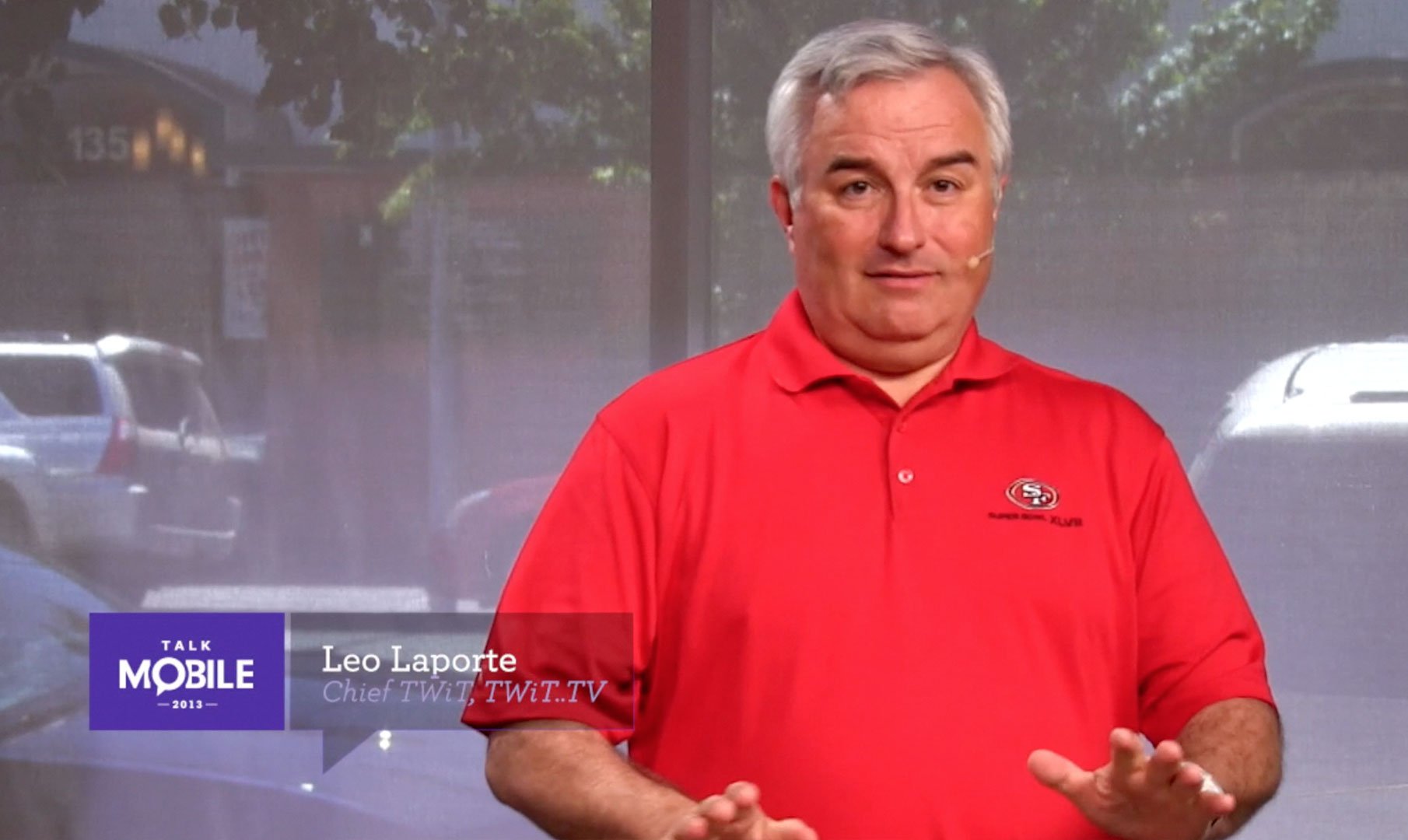
When you ask me what I want to see? Slow down! I'm just getting used to this stuff, okay?!
- Leo Laporte / Chief TWiT, TWiT.TV
Q:
How can your operating system evolve for the future?
313 comments
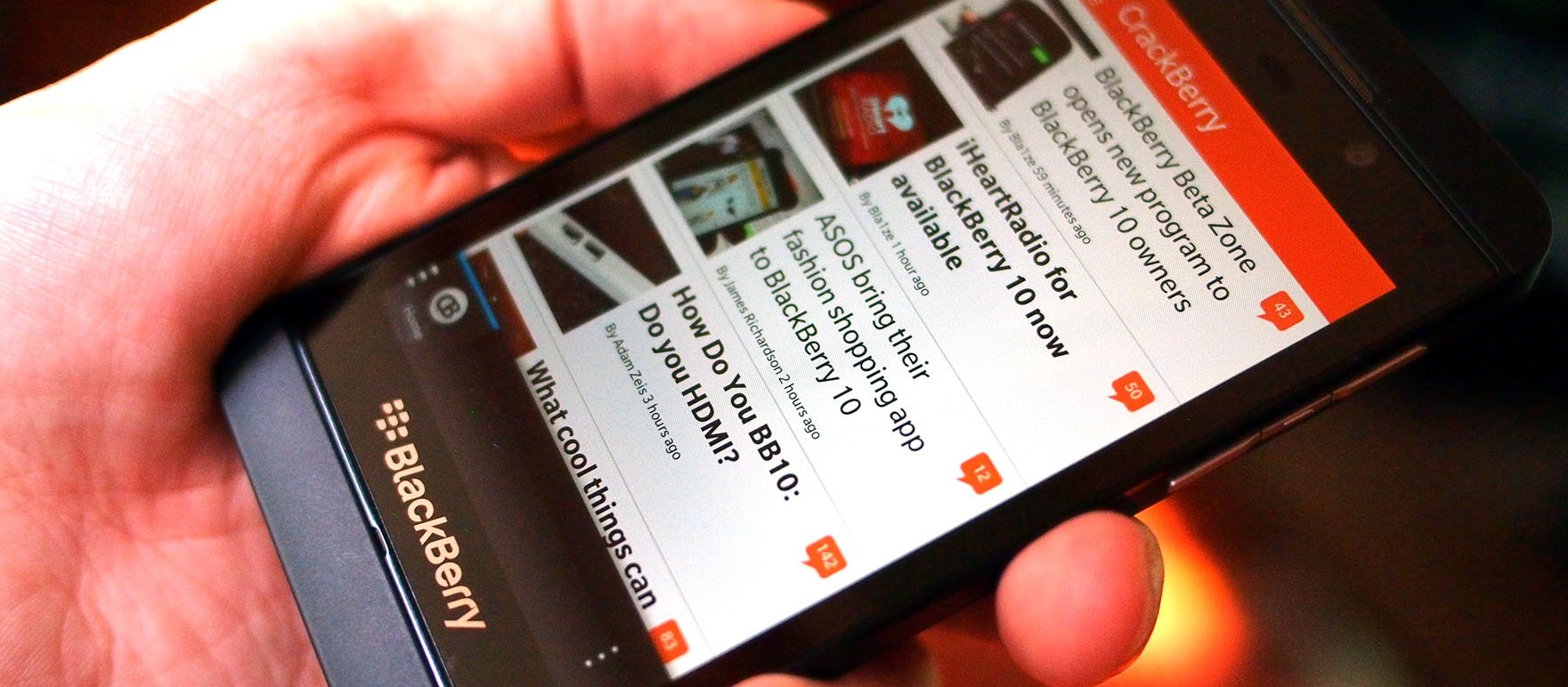
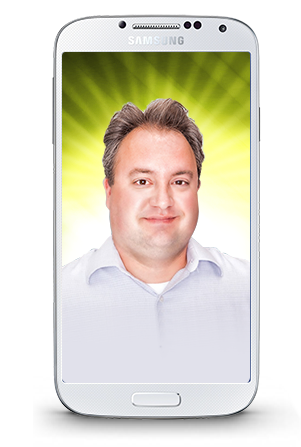
Phil Nickinson Android Central
Connected, aware, and evolving services
As the look and feel of what's "mobile" continues to evolve, so, too, will the services continue to grow. Many of the services we use and love today - Siri, Google Now, Dropbox - were inconceivable just a few short years ago.
The fight for the living room is still in its infancy, with none of the players able to gain real traction so far. Microsoft continues to be best suited, probably, with the tight integration of its services between traditional desktop computing, Windows Phone, and the Xbox -- and specifically in the new hyper-connected and hyper-aware Xbox One.
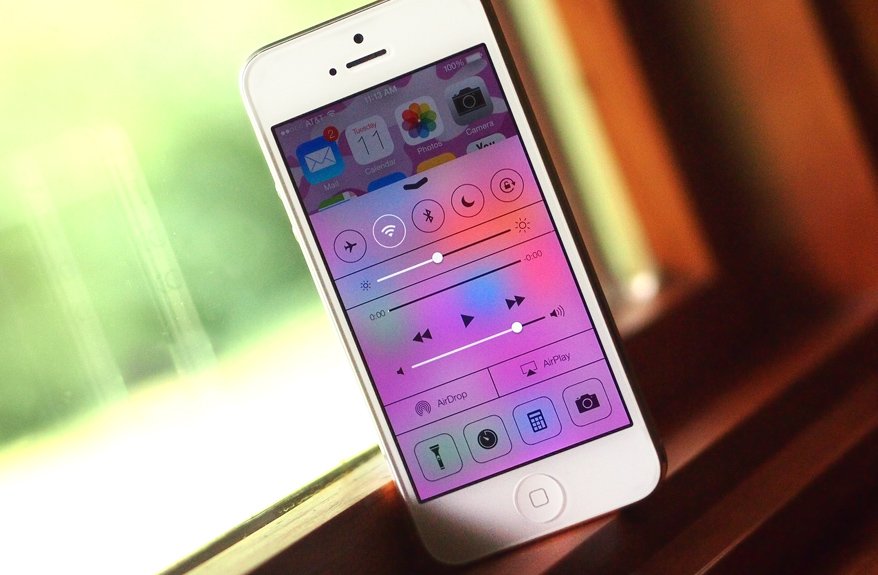
An iPod, a phone, and an internet communicator
Apple's mobile device history goes back many years. Development of the Newton PDA began in 1987 and saw its first release in 1993. After the return of Steve Jobs (and cancellation of the Newton), Apple moved back into mobile devices with the iPod music player in 2001.
Famously secretive under Jobs, Apple surprised the tech community with unveiling of the iPhone and iPhone OS in 2007. While the device was expected (but the specifics were unknown), the multitouch interface operating system was a radical departure from the smartphone operating systems that predated it. iPhone OS kicked off a revolution in the smartphone industry, and the success of the iPhone dramatically raised Apple's profile.
Three years later, Apple launched the iPad tablet, revealing that iOS had originally been designed for the larger and more powerful tablet form factor. To date, Apple has sold more than 250 million iPhones and well over 100 million iPads, all powered by the iOS operating system.
Sony too has a strong foothold in the living room with the PlayStation, but they're lacking in a well-adopted line of mobile hardware line or services. Let's not forget the 800-pound gorilla that is Apple, working on Ives-only-knows down in the workshop. Smaller players such as Logitech are leveraging smartphones and tablets along with their traditional product lines. But there's still a long way to go.
Cloud data isn't going anywhere anytime soon, and it also will continue to grow. Google is continuing to make a push with its Chromebook laptop lines, blurring the lines between local and cloud computing. Even so, traditional computing isn't going to go the way of the dodo in the near future, but we are going to see growth in web-only (OK, mostly web-only) computers, and cost and quality will find a better equilibrium. Hopefully we won't have to go through a netbook phase to get there.
Your mobile device quickly has become the easiest portal into your digital self.
And mobile services will continue to focus on identity. We like to joke that "My life is in my phone," which hopefully isn't true in the literal sense. But your mobile device quickly has become the easiest portal into your digital self, as you almost always have it with you. We interact with these devices more and more frequently every day and in a greater variety of manners than ever before. They're used for secondary password systems. They're used (sparingly) for mobile payments. For banking. And none of that is going anywhere anytime soon, either.
All of these services combined are making us more connected than ever before. We have more information literally at our fingertips than the creators of computing and the internet could ever have imagined. These services are empowering us to not worry about data and files and searches, and to just do what we need to do.
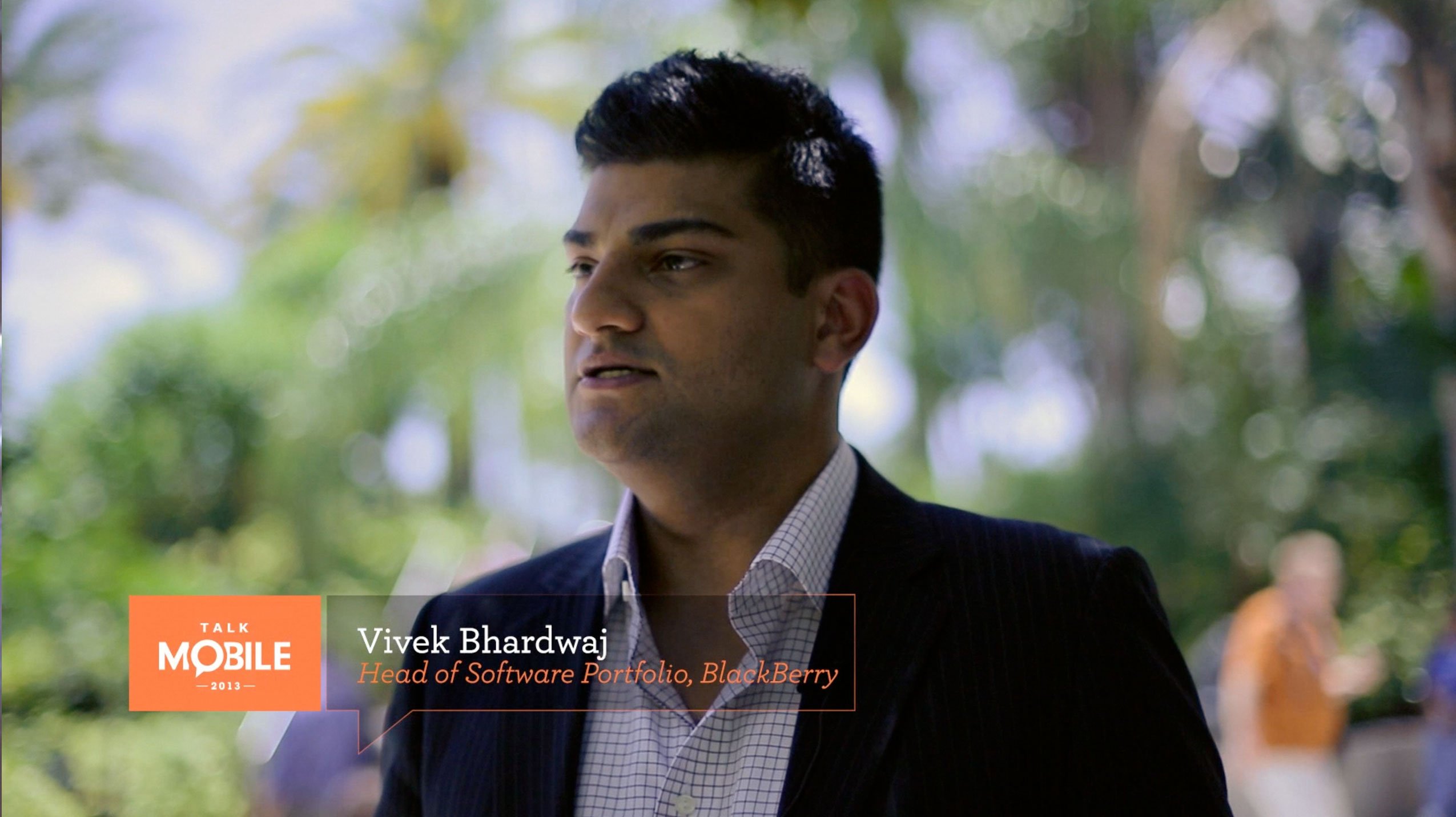
Our vision is, you carry around a single mobile computing end-point and, depending on your environment, the platform should sense, understand, and then adapt.
- Vivek Bhardwaj / Head of Software Portfolio, BlackBerry
Q:
What should your smartphone be predicting?
313 comments
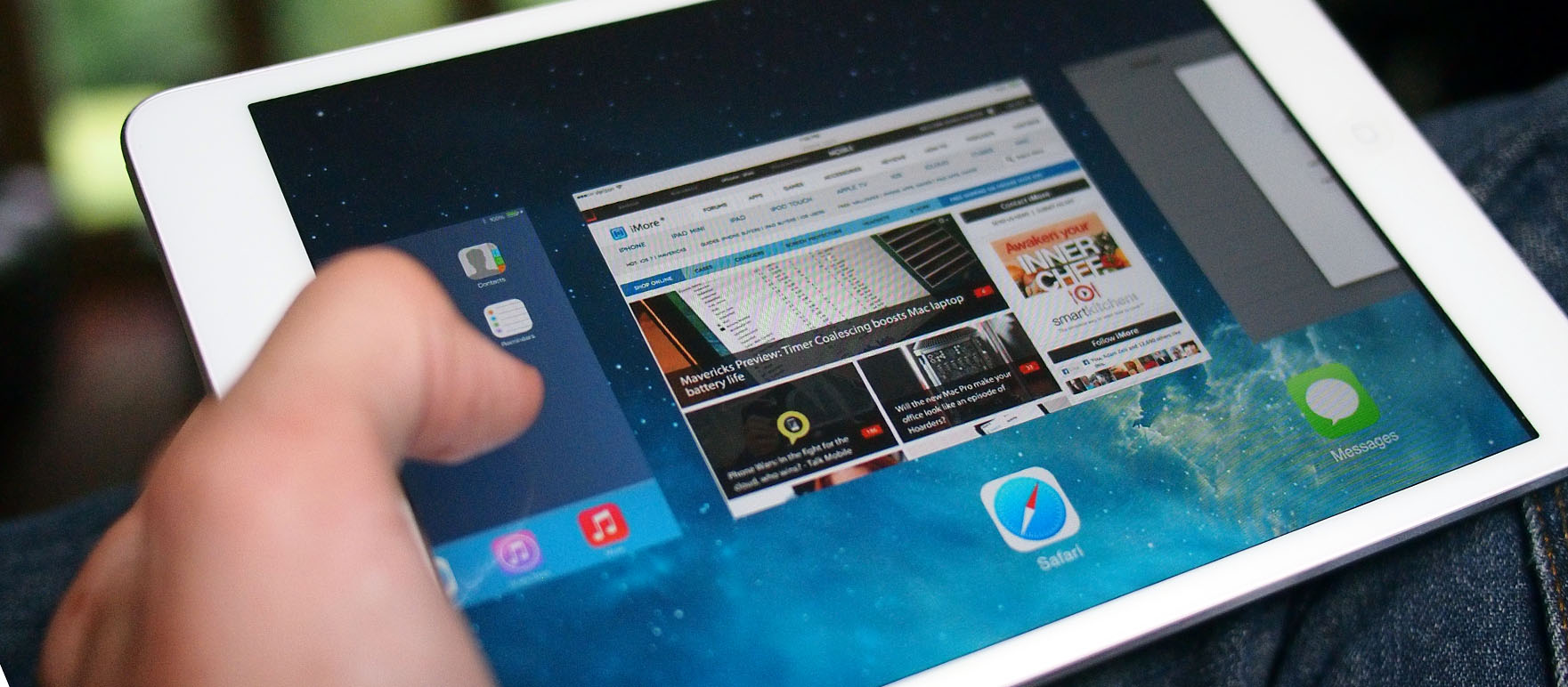
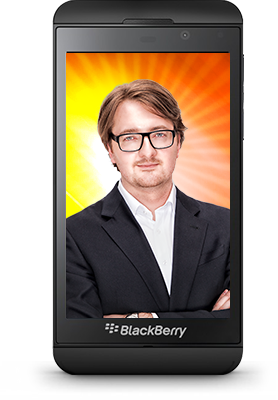
Kevin Michaluk CrackBerry
Stop withholding the stuff I want to buy!
I can't help but wish the future of mobile ecosystems would become more like the present of web-based ones. Mac or Windows, Chrome or Firefox or Safari or Internet Explorer, I can go to a website and with a few clicks buy pretty much anything I want. It doesn't matter what platform I'm using, it only matters that I want it and they have it.
Imagine if mobile was like that. Wouldn't it be great if iTunes.com was accessible via the web on BlackBerry, Windows Phone, and Android? Hey, Apple, you're doing it for your productivity tools with iWork in the Cloud, why not for iTunes? Or how about making an iTunes app for other platforms - guaranteed chart topper, no? I have money! Take. My. Money!
I have money! Take. My. Money!
But the way mobile is structured right now you have just a handful of companies controlling what you can get at via your phone. And that's what manufacturers want. They want as many reasons as possible to entice you to their platform. And they want to make as inconvenient, expensive, and painful as possible to switch to another platform.
If you're on an iPhone and have already spent $500 on apps and movies in iTunes, the realized cost of switching to BB10 is much greater than just buying a new phone. You have to take into account your ecosystem switching costs too, and the longer you're on a platform, the larger that switching cost becomes.
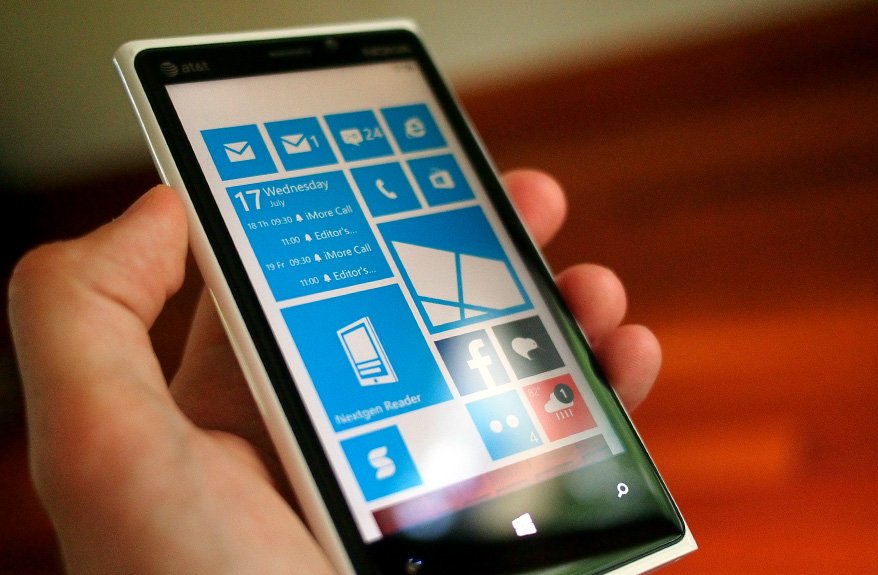
Touchless in Redmond
Microsoft has had a long fascination with touchscreen computing. Their research projects date back to 1990, though there were several false starts before the release of Pocket PC 2000. Based on Windows CE 3.0 (based on Windows 95), Pocket PC worked like a stylus-driven scaled-down version of Windows, completed with a Start Menu and a mobile version of Microsoft Office. Text input was handled by handwriting; Pocket PC was built to learn the users's handwriting (though more often the user that learned what the phone expected).
Pocket PC was rebranded as Windows Mobile with the 2003 update. Version 6 of Windows Mobile was revealed just a month after the iPhone and iPhone OS. Microsoft scrambled to update the operating system, but it became clear that customers weren't interested in Windows Mobile's dated appearance, capabilities, or apps.
Microsoft's took inspiration from the Zune media player's interface for the design of Windows Phone 7. Windows Phone eschewed existing user interface paradigms in favor of a flat tile-based design that presented more up-front information to users. The Windows Phone 8 update, while incompatible with old hardware, was built on the same kernel and code base as the newly touch-friendly Windows 8 desktop operating system.
I'd love to see the day where you could buy an app once and that meant you could redownload the app on any platform later (you bought it on BlackBerry 10, why buy it again on iOS?), but I think this is a complete pipe dream that's drowning in the reality of competition and cross-platform app development.
Unfortunately for users, I think the next few years the future of mobile ecosystems will just continue down the same path. App stores will get bigger, as will the supply of supplementary content like movies, music, and books. They'll all fill out more and more. But they'll still remain segregated between platforms. It may be the way things are, but that doesn't mean I have to be happy about it.
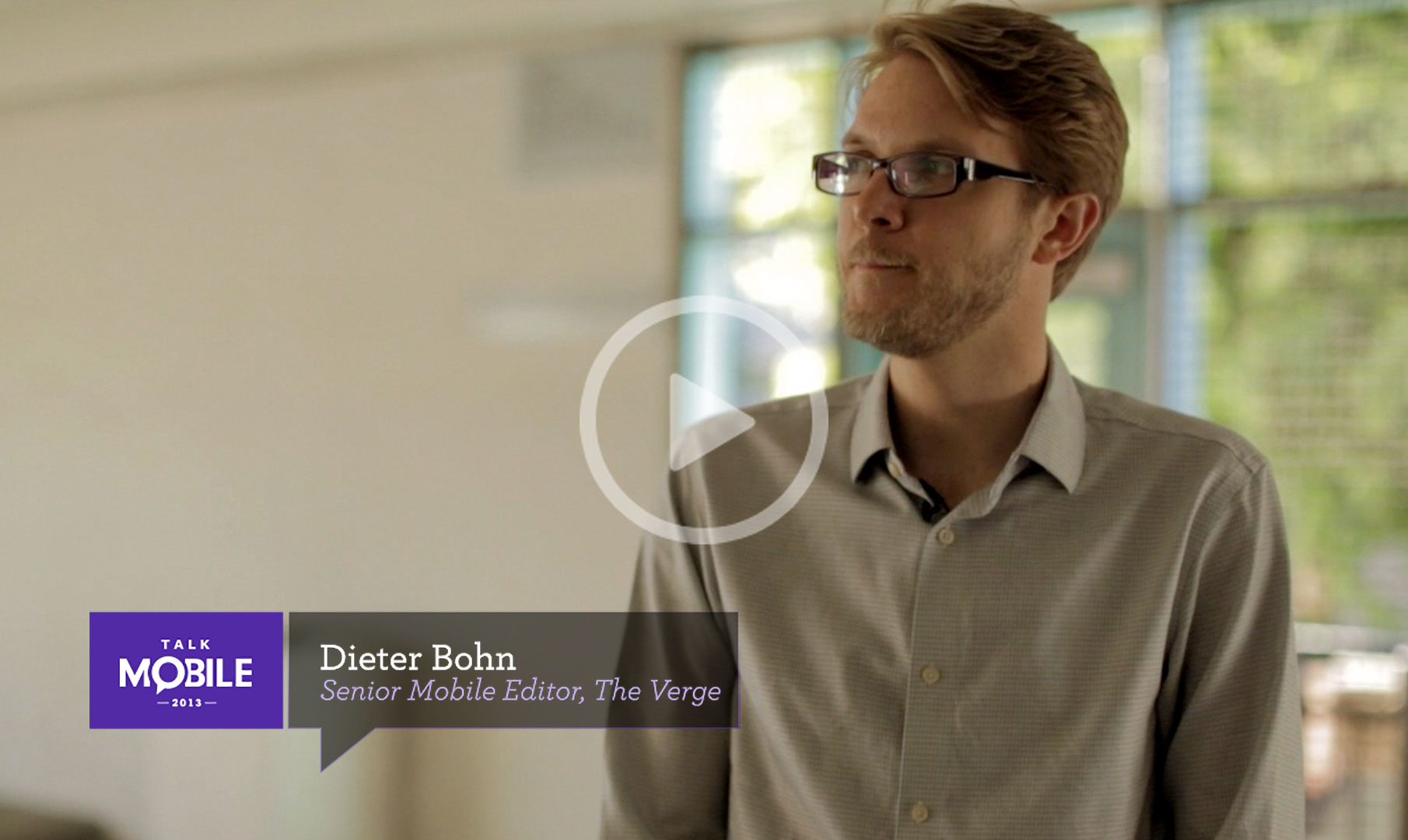
Right now we have been and are building the future of computing, and what it means to be connected to the internet, for the vast majority of human beings.
- Dieter Bohn / Senior Mobile Editor, The Verge
Q:
Talk Mobile Survey: The state of mobile platforms
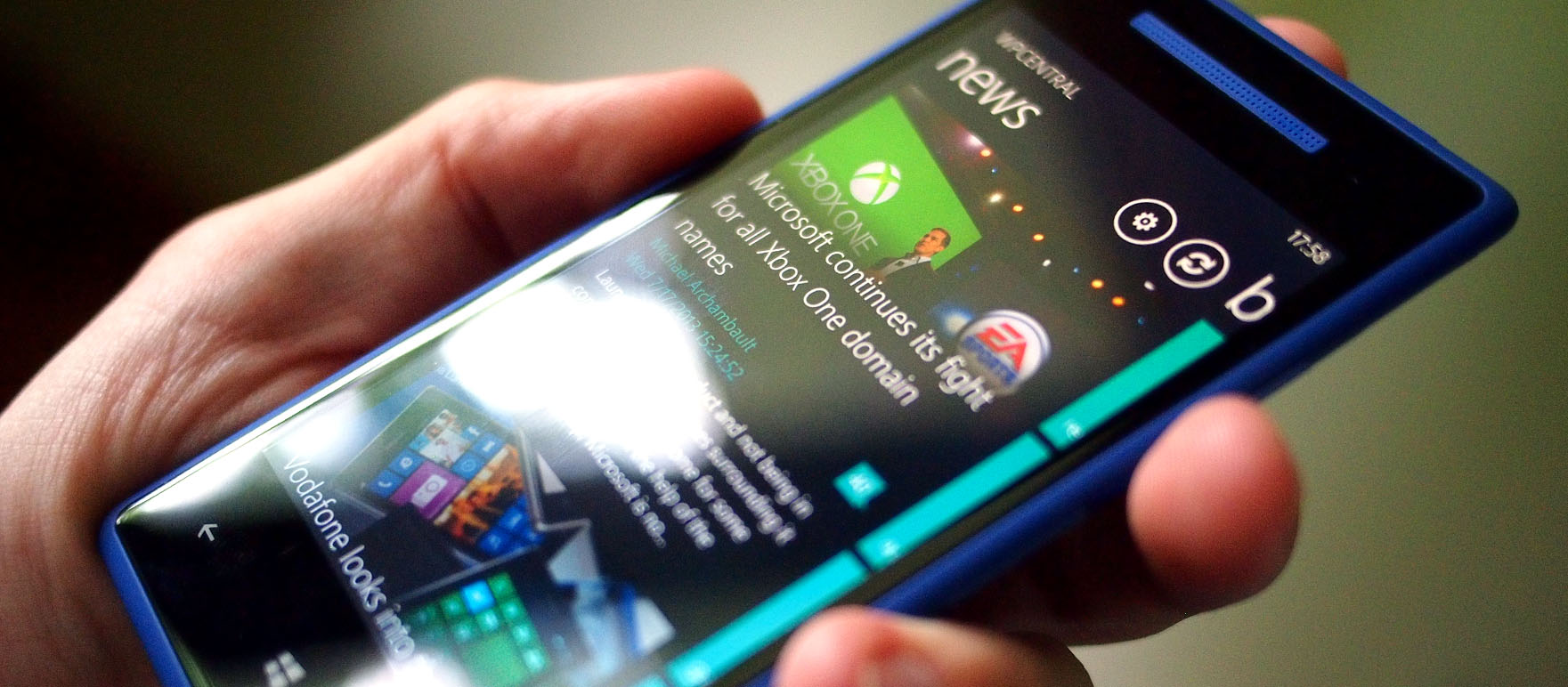
Conclusion
What does the future of the smartphone look like? Is it going to be more in the cloud or just more powerful yet efficient devices? Does it mean more aware and predictive services or wider content availability? Probably all of the above and then some.
By its very nature the details of the future are hard to predict. We can say with certainty that our smartphones are going to become faster, be able to store more, and get better battery life, all while being thinner and lighter. But exactly how we're going to get there is harder to nail down.
The same can be said for the software and services that make the phone do things. Hardware has finally advanced to the point where our smartphones aren't taxed in trying to do daily work, let alone hard computing like the heavy high-quality games of today. Hardware has practically grown standardized, so it's up to software and services to differentiate.
After trending towards a common interface style, mobile operating systems are branching out, and not just in style. They're interactive in more ways, more predictive and more adaptable than ever. There's no reason to think that the coming years will be anything but more of the same.
It really is a brave new world of mobile computing. It's exciting. What do you see happening?

